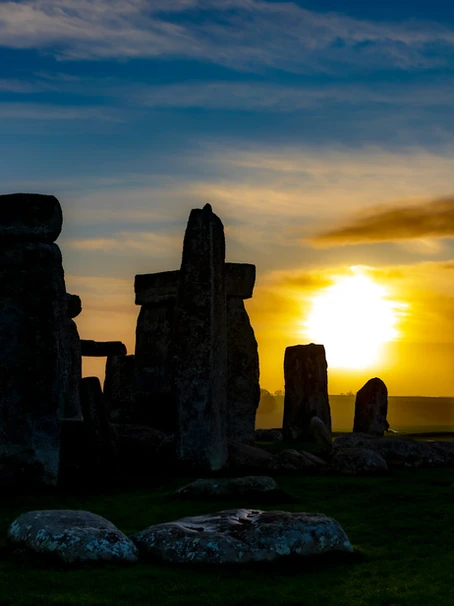
A New Witch’s Introduction to Casting Spells and Using Spell Kits
Did you know that spell-casting is one of the oldest spiritual practices in the world? That’s right! Ancient civilizations dating back to the first millennium

Alternative spirituality beliefs have been gaining in popularity in recent years, with many individuals turning away from traditional mainstream religions in search of a more personal connection to the divine. Some of the most common alternative spirituality practices include paganism, Wicca, and witchcraft. While these practices may be seen as unconventional by some, they often offer a deeper sense of connection to nature and the universe.
Paganism is one of the oldest known religions, dating back to ancient times. It is a diverse religious tradition that encompasses many different beliefs and practices. Generally, pagans worship multiple gods and goddesses, and often celebrate the changing seasons and natural cycles of the earth. Wicca, on the other hand, is a more modern form of paganism that was developed in the mid-20th century. Wiccans also believe in a divine presence in nature, and often practice witchcraft and spellwork.
In contrast, mainstream religions like Christianity, Judaism, Islam, Hinduism, Buddhism, and Jainism are centered around belief in one or more deities or a higher power. Christianity, for example, is based on the teachings of Jesus Christ and emphasizes the importance of faith, love, and forgiveness. Mormonism, a branch of Christianity, believes in the divinity of the Book of Mormon and in modern-day prophets.

Hinduism, which originated in India, is a complex religion with a diverse range of beliefs and practices. It is centered around the concept of karma, or the idea that a person’s actions in this life will determine their fate in the next. Muslims follow the teachings of the prophet Muhammad and believe in the oneness of God. Judaism is based on the belief in one God who made a covenant with the Jewish people. Buddhism emphasizes the importance of meditation and mindfulness in achieving enlightenment. Jainism, which originated in India, is centered around the principle of nonviolence and respect for all living beings.

When comparing mainstream religions to alternative spiritual practices, one major difference is the emphasis on ritual and ceremony. While mainstream religions often have set rituals and practices, alternative spiritual practices like witchcraft and Wicca often involve more personal and individualized rituals. For example, many Wiccans practice spellwork, which involves using candles, crystals, and other objects to focus their intentions and manifest their desires.

Interestingly, many of the practices and traditions of mainstream religions have their roots in pagan and other pre-Christian beliefs. For example, the use of candles, evergreen trees, and other symbols during Christmas can be traced back to pagan winter solstice celebrations. This is not to say that these mainstream religions are necessarily based on pagan practices, but rather that they have adapted and evolved over time, incorporating elements from many different sources.
In conclusion, alternative spirituality practices like paganism, Wicca, and witchcraft offer a unique and personal way to connect with the divine. While they differ from mainstream religions in many ways, they can also share similarities and overlap in their beliefs and practices. As more people seek a deeper spiritual connection outside of traditional religion, alternative spiritual practices are likely to continue to grow in popularity.
#Wicca #Pagan #Witchcraft #Religion #Universe #Cosmos #UniversalConsciousness

Did you know that spell-casting is one of the oldest spiritual practices in the world? That’s right! Ancient civilizations dating back to the first millennium

In the realm of majick and spellwork, sigils stand as powerful tools of manifestation and intention. These mystical symbols, crafted with intention and purpose, have

No ritual is complete without spell-casting! The practice of casting spells has been around for centuries. Many indigenous cultures continue to cast spells using their
I love these products! They come quickly and are well packaged! The Euphoria Oil smells amazing! Will be buying from this store again
The Euphoria ritual oil smells amazing! Everything came very well packaged especially from this oncoming summer heat.
Loving the prices! Some of the bundles are a little more than I can do right now but, for the most part I am truly pleased with my birthday present(s)
I absolutely LOVE these earrings! Items shipped fast, and were well packaged. I even got a a sample of body oil with purchase!
The packaging was beautiful! Instructions were easy to understand. I haven’t seen any results as of yet as I have only completed one ritual, but i can tell by the energy from it that it will work!





Subscribe to our newsletter and get in touch with the latest updates.
Welcome to Moonstruck Majick! We are an online boutique that supplies the witching world and alternative spirituality practitioners with ritual and spell supplies, curated from artisans across the United States.
© Copyright 2023 Moonstruck Majick . All Rights Reserved
© Copyright 2023 Moonstruck Majick . All Rights Reserved